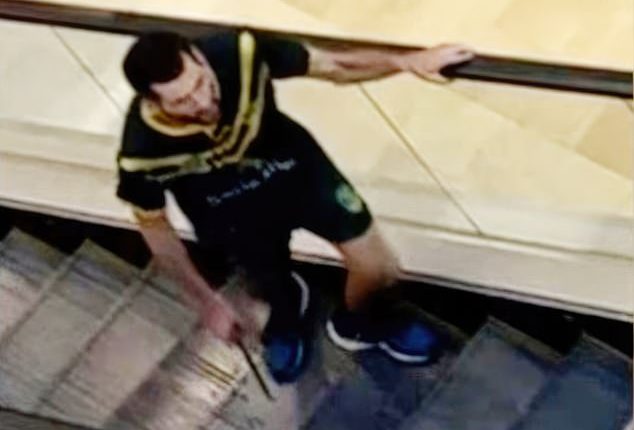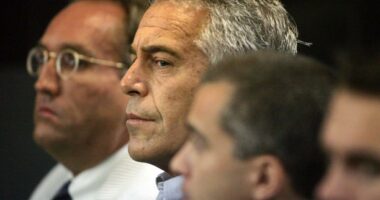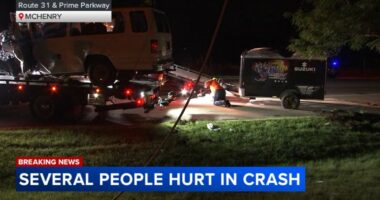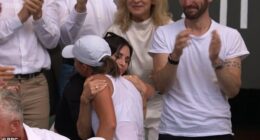A general practitioner says he had no information about potential signs of a psychotic relapse for the man who ended up killing half a dozen people at a shopping centre.
Joel Cauchi, 40, killed six people and injured 10 others at Sydney’s Bondi Junction Westfield in April 2024 before being shot dead by police.
His regular Queensland GP Richard Grundy testified at an inquest into the tragedy on Thursday.
Dr Grundy said he was not told about any concerns by his private psychiatrist when Cauchi relocated from Toowoomba to Brisbane in early 2020.
‘I had nothing,’ he told the NSW Coroners Court.
Dr Grundy said he would have attempted some sort of follow-up if he had been told about concerns raised by Cauchi’s mother with his private psychiatrist – only known as Dr A for legal reasons – between October 2019 and February 2020.
These potential signs of relapse included a large number of notes being left around the house – some referring to satanic control – excessive obsessive-compulsive disorder (OCD), an obsession with pornography, irritability and a strange gait.
In mid-2019, Cauchi had stopped taking two antipsychotics under the guidance of Dr A which had successfully treated his schizophrenia symptoms since he was a teenager.

Joel Cauchi, 40, was experiencing psychotic symptoms on the day he fatally stabbed six people at Westfield Bondi Junction

Joel Cauchi’s GP told an inquest on Thursday that he was not told about any concerns by his private psychiatrist (pictured)
‘I didn’t have any information – all those things that were discussed for some reason or another never came to me,’ Dr Grundy told the court by videolink from London.
On discharging Cauchi from her clinic in March 2020, Dr A sent a letter to Dr Grundy.
‘Please recall Joel to discuss his options and referral to an alternative psychiatrist if required,’ she wrote.
In earlier evidence given to the coroner, Dr A insisted she had a lengthy phone conversation with Dr Grundy after sending this letter.
‘I can take Joel back, I am the family GP, I know him very well and I will recall (him),’ the GP told her, according to her evidence.
However on Thursday, he denied that this conversation took place, saying there was no record of it in his notes.
Another psychiatrist who gave Cauchi a medical report supporting a gun licence also gave evidence to the court.
During a single one-hour session in Brisbane in January 2021, Cauchi denied any hallucinations or psychotic symptoms with the doctor reporting he had a ‘stable mood’.

Bondi Junction victims pictured L-R: Ashlee Good, 38, security guard Faraz Tahir, 30, Jade Young, 47, Dawn Singleton, 25, Pakria Darchia, 55, Yixuan Cheng, 27
He told the court he had sought collateral information from private and public health systems in Toowoomba to confirm what he had been told.
He was unable to get details from Cauchi’s mother, saying he had only consented that they be contacted in an emergency.
The doctor admitted that inconsistencies he was told about the length of time Cauchi had taken antipsychotics could have been a ‘red flag’.
A medical report was eventually supplied to Queensland Police which eventually provided Cauchi with a statement of eligibility to get a gun licence.

Joel Cauchi, 40, killed six people and injured 10 others at Sydney ‘s Bondi Junction Westfield in April 2024 before being shot dead by police.
However, he did not follow through with obtaining the licence itself.
Cauchi was transferred from the public to private health sectors in 2012 when he formed a plan with Dr A to decrease his medication.
By mid-2019, he was completely off the antipsychotics and he became detached from the mental health system early the following year after moving to Brisbane.
The inquest continues.









